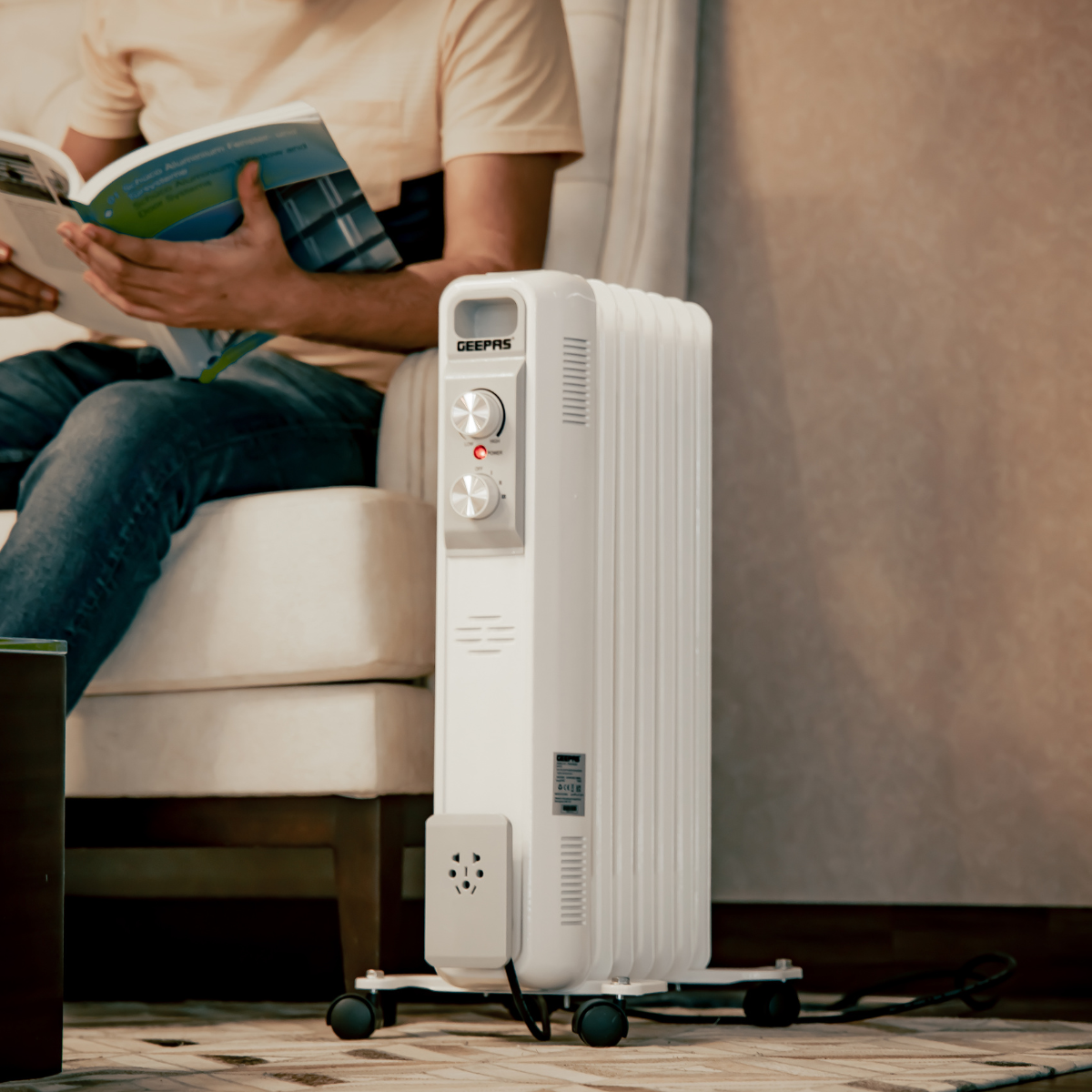As the cooler months approach, finding an efficient heating solution becomes priority for many households. Oil-filled radiator heaters have gained popularity due to their unique design and energy-efficient features. In this blog, we will delve into the world of oil-filled radiator heaters to determine whether they live up to their reputation as energy-efficient heating options.
Understanding Oil-Filled Radiator Heaters:
Oil-filled radiator heaters, often referred to as oil heaters or column heaters, are portable heating devices that use electricity to heat oil sealed within their columns (also known as fins). These heaters are known for their silent operation, safety features, and their ability to provide consistent, long-lasting warmth. But the question remains: Are they truly energy-efficient?
Energy Efficiency Factors:
Let's break down the key factors that determine the energy efficiency of oil-filled radiator heaters:
- Heat Retention: Oil-filled radiators excel at retaining heat. Once the oil inside the columns heats up, it continues to radiate warmth even after the thermostat switches off. This means the heater doesn't need to work constantly to maintain a comfortable temperature.
- Thermostat Control: Most modern oil-filled radiators come equipped with thermostats. This feature allows you to set your desired temperature, and the heater will cycle on and off to maintain it. This prevents unnecessary energy consumption.
- Even Heating: Oil heaters provide even heating across the room. They don't produce intense bursts of heat, which can lead to temperature fluctuations and higher energy usage.
- Silent Operation: Oil-filled radiators operate silently. Unlike forced-air heating systems that can be noisy, these heaters won't disrupt your peace and quiet.
- Portability: Portability is another advantage. You can move an oil-filled radiator to the room you're using, avoiding the need to heat the entire house.
- No Fan Required: Unlike some electric heaters that use fans to distribute heat quickly, oil heaters rely on natural convection. This means they don't consume extra energy by running a fan.
- Low Maintenance: Oil-filled radiators require minimal maintenance. They don't have filters that need cleaning or replacing, reducing overall upkeep costs.
- Energy-Saving Features: Some models include features like programmable timers and eco-modes that help further reduce energy consumption.
How Much Electricity Do Oil-Filled Radiators Use?
Oil-filled radiators come in various wattages, typically ranging from 650W to 2500W. The higher the wattage, the faster the heater warms up and the larger the area it can potentially heat. But, it also translates to higher electricity consumption.
Calculating Energy Consumption:
To estimate the electricity use of your oil-filled radiator, follow these steps:
- Find the wattage - This information is usually displayed on the label of the radiator itself.
- Estimate usage time - Determine the average daily or hourly duration you plan to use the radiator.
- Calculate daily/hourly consumption - Multiply the wattage by the usage time (in hours) to get the energy consumption in watt-hours (Wh). For example, a 1500W radiator used for 5 hours daily consumes 1500W x 5h = 7500Wh.
- Convert to kilowatt-hours (kWh) - Divide the watt-hour figure by 1000. In our example, 7500Wh / 1000 = 7.5kWh.
Electricity Costs and Annual Usage:
The actual running cost depends on your electricity tariff. As of April 2024, the average UK electricity price sits around 33.2 pence per kWh. So, using the example above (7.5kWh daily consumption), the daily cost would be 7.5kWh * 33.2p/kWh = £2.49.
Annual costs: If you use the oil-filled radiator for several hours daily throughout winter (say, 4 months), the estimated seasonal cost could be around £2.49/day * 30 days/month * 4 months = £398.40.
These prices will vary for everyone, depending on the radiator heater you own and the price you pay for electricity.**
So, are oil-filled radiator heaters energy efficient? yes, they are. Their ability to retain heat, use thermostats for precise temperature control, and operate silently make them an excellent choice for energy-conscious consumers. While they may have a slightly slower heat-up time compared to some other electric heaters, their efficiency and long-term cost savings often outweigh this minor inconvenience.
However, as with any heating appliance, the overall efficiency also depends on factors like room insulation, proper sizing of the heater, and personal usage habits. To maximize energy efficiency, ensure your home is well-insulated, and choose the right-sized oil-filled radiator heater for your space. Additionally, using a programmable thermostat to adjust the temperature based on your schedule can lead to even greater energy savings.
In conclusion, oil-filled radiator heaters offer an energy-efficient and cost-effective way to stay warm during the colder months while providing the comfort and convenience every household needs.




